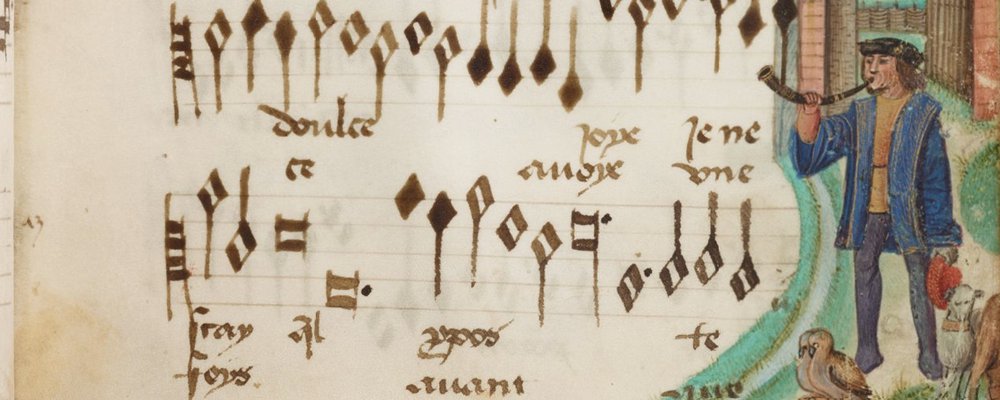Lost in Translation? Multilingualism in Early Song, 1350-1550

B-Br-ms-IV 1274 f. 4r © Alamire Digital Lab, KBR
Multilingualism is a widely discussed societal phenomenon and is increasingly studied from an academic perspective. The present project aims to contribute to a better understanding of multilingualism from a specific historical perspective: medieval and early modern song (1350-1550) in the Low Countries.
It aims to meet three objectives:
- to gauge the synchronicity or co-existence of various languages within the repertory at certain points in its history when the repertory was written down in various multilingual sources
- to assess the fluidity and flexibility between languages diachronically, by studying the processes of setting texts to music and, alternatively, adapting extant music to new texts in new languages
- to chart these aspects geographically
A multidisciplinary collaboration between musicologists, musicians, translation scholars, (literary) historians, and database specialists will focus on mapping out multilingualism in the songs’ material sources, within the song repertory itself, and in the circulation of both. In IDEM, a new module will be built to process these data and to make them accessible for use by researchers and performers. The critical historical study of the multilingualism that shapes and diversifies the early song repertory will, furthermore, result in the creation of an authoritative, historically and critically informed body of song translations– a commodity that is in worldwide demand by scholars, performers, early music festivals, and concert halls.
